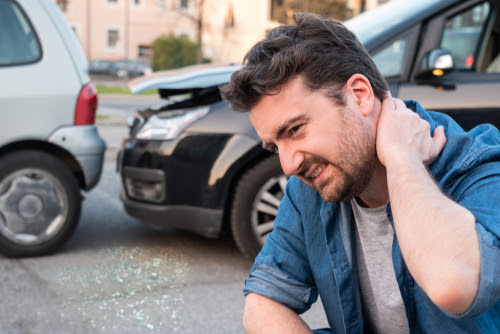One of the most common types of crashes is a rear-end crash, often causing injuries for those unlucky enough to be involved. Even a low-speed crash can cause injuries, ranging from whiplash to brain injuries. Depending on the extent of the injuries, a victim of a rear-end crash can end up with thousands of dollars in medical expenses, lost income from missing work while recovering, and a negative effect on their quality of life during this recovery time. Some of these injuries can even be long-term or permanent.
Determining fault in a rear-end crash in Virginia, like in many other states, generally relies on the principle of negligence. In rear-end collisions, the driver who fails to exercise reasonable care and ends up striking the vehicle in front is often considered at fault. However, there are situations where liability may be shared or assigned differently.
Who Is Liable?
Whatever the extent of injuries and losses, a victim of a rear-end crash may be entitled to financial compensation if the other driver was at fault. A Virginia car accident attorney can not only help determine who is liable for the crash but also help victims obtain that financial compensation.
In Virginia, there is a presumption of fault against the driver who rear-ends another vehicle. This presumption arises because drivers are expected to maintain a safe following distance, drive at a speed that allows them to stop safely, and remain vigilant for sudden stops or slowing traffic. In the majority of rear-end crashes, it is the driver in the rear vehicle who is responsible for the crash. One of the most common reasons is distracted driving. Even taking your eyes and attention off the road for seconds can result in a crash. If the driver was on their cell phone or engaging in some other type of distracted driving behavior, they would be deemed negligent for the crash. Another common reason is that the rear driver was speeding and could not slow down or stop in time.
There are rear-end crashes where the front driver is responsible for the accident. For example, if the driver suddenly makes a stop while going through a green light, the vehicles behind that driver may not have enough time to stop at this traffic flow interruption. Another way a front driver could cause a rear-end collision is if they were engaging in aggressive driving or road rage, such as dangerously hitting their brakes for no reason.
There can be some crashes where both vehicle drivers share fault for the collision. Virginia follows the contributory negligence doctrine. This means that if an injured victim was in any way responsible for the crash that caused their injuries, they cannot pursue damages. The other driver would need to be 100 percent at fault for the crash in order for a victim to be awarded financial compensation for their losses from the other driver.
Evidence and Documentation
In any accident, the collection and preservation of evidence are crucial. Both drivers should exchange insurance and contact information. Additionally, taking photographs of the accident scene, vehicle damage, and road conditions can provide valuable documentation. Eyewitness statements, if available, can also help establish fault. Contacting law enforcement to report the accident is often crucial to your case – and in many crashes, it is required by law. Police officers will investigate the scene, interview witnesses, and compile a police report. This report can be a significant piece of evidence in determining fault.
Let a Virginia Injury Attorney Help
If you have suffered an injury caused by the negligent or reckless behavior of another driver in a rear-end crash, contact a Virginia car accident attorney to discuss what your legal options may be. Victims can be compensated for medical expenses, lost income from being unable to work, pain and suffering, and emotional anguish.
If they are left with a long-term or permanent disability, they may also be entitled to financial compensation for the losses this disability has caused, including loss of future income if they are unable to work or return to their profession, future medical expenses, and the overall negative impact the injury has had on their quality of life.
Our Virginia personal injury attorneys have successfully represented many clients who were forced to deal with painful injuries and long recoveries due to another person’s negligence. Contact our office today to schedule a free case evaluation.
RELATED CONTENT
- Common Car Accident Injury: Torn Rotator Cuff
- When an Accident Reinjures a Preexisting Condition
- Should I use my health insurance if I have been in a wreck?
